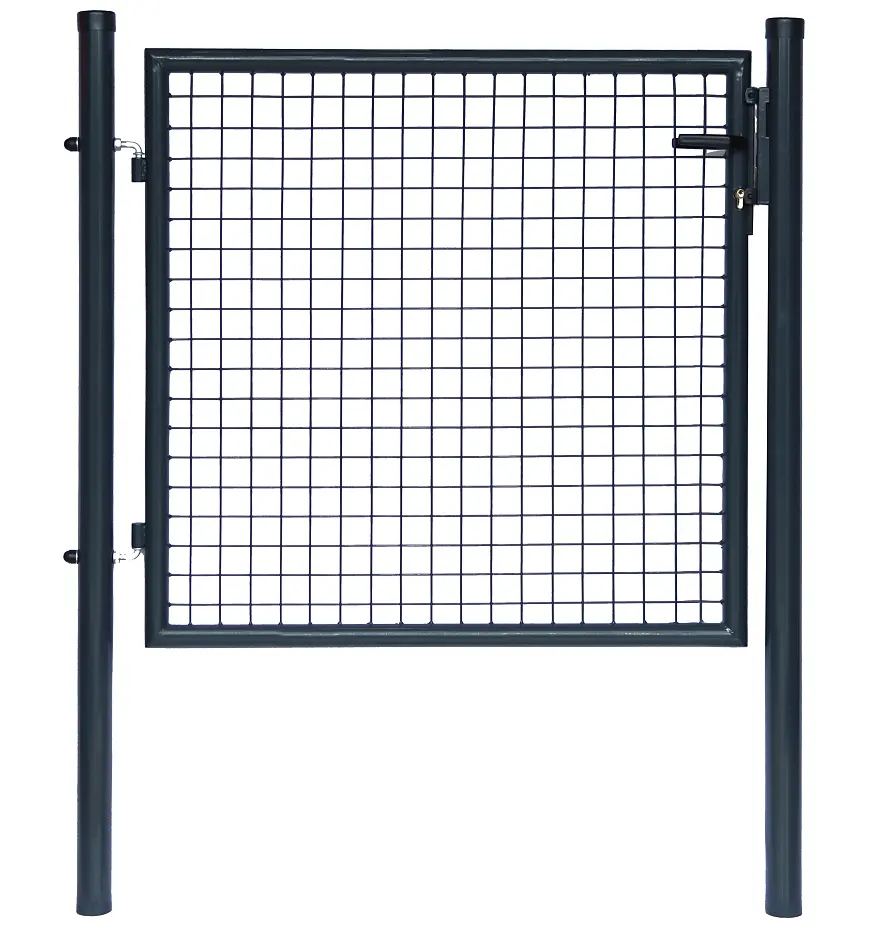There are different types of locking mechanisms available for wire mesh fence gates, each with its own advantages and disadvantages.
Here are some common types of locking mechanisms for wire mesh fence gates:
Padlock and chain: This is a simple and affordable locking mechanism where a padlock is used to secure the gate to a chain or a post. However, it can be easily cut or removed with bolt cutters, and it may not provide the level of security required for certain applications.
Hasp and staple: This locking mechanism involves a hasp that is attached to the gate and a staple that is attached to the post. The hasp is closed with a padlock to secure the gate. This type of lock is more secure than a padlock and chain, but it may be susceptible to tampering if the hasp is not strong enough.
Slam latch: A slam latch is a spring-loaded latch that is designed to automatically close and latch the gate when it is slammed shut. This is a convenient and easy-to-use locking mechanism, but it may not provide a high level of security.
Deadbolt: A deadbolt is a lock that is operated by a key or thumb turn and is designed to provide a high level of security. It is often used in combination with other locking mechanisms, such as a hasp and staple, to provide additional security.
Magnetic lock: A magnetic lock is an electronic locking mechanism that uses a magnet to secure the gate. wire mesh fence gates It is often used in conjunction with a keypad or card reader for access control, and it provides a high level of security. However, it is more expensive than other types of locking mechanisms and requires a power source.
When selecting a locking mechanism for a wire mesh fence gate, it’s important to consider factors such as the level of security required, the ease of use, and the cost. A reputable fence contractor can provide guidance on selecting the right locking mechanism for your specific needs.
What are some factors I should consider when deciding on a locking mechanism?
Here are some factors to consider when deciding on a locking mechanism for a wire mesh fence gate:
Security: The level of security required will depend on the application of the fence and the value of the assets or property being protected. For example, a residential property may require a different level of security than a commercial or industrial property.
Access control: Consider who needs access to the fenced area and how often. If there are a large number of people who need access, a keypad or card reader may be more convenient than a key-operated lock.
Ease of use: The locking mechanism should be easy to use and operate for authorized personnel. Consider the type of gate and how it will be used when selecting a locking mechanism.
Maintenance: Some locking mechanisms require more maintenance than others. Consider the maintenance requirements for each type of locking mechanism and choose one that is easy to maintain.
Cost: The cost of the locking mechanism should be considered in relation to the level of security required and the budget available. Some types of locking mechanisms may be more expensive than others.
Compatibility: The locking mechanism should be compatible with the gate and fence system. Consider the type of gate and the material it is made from when selecting a locking mechanism.
Overall, it’s important to consider the specific requirements of the fence system and the level of security required when selecting a locking mechanism for a wire mesh fence gate. A reputable fence contractor can provide guidance on selecting the right locking mechanism for your specific needs.

